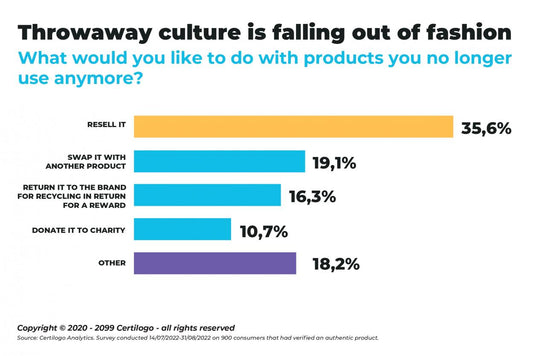What is Corporate Social Responsibility?
All the benefits of fashion rental
What is greenwashing and how can you avoid it?
Take-back schemes: 7 brands that collect and recycle their own products
What is a circular fashion product?
No product authentication. No sustainability.
How can brands be active in the second hand market for their products?
Why is Fast Fashion unsustainable?
Authentication as a necessity for sustainable strategies
Why brands must invest in sustainability strategies



























